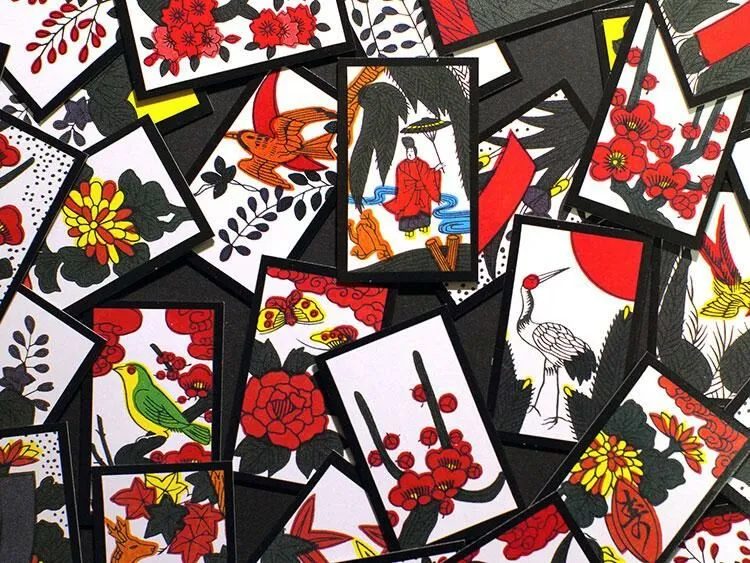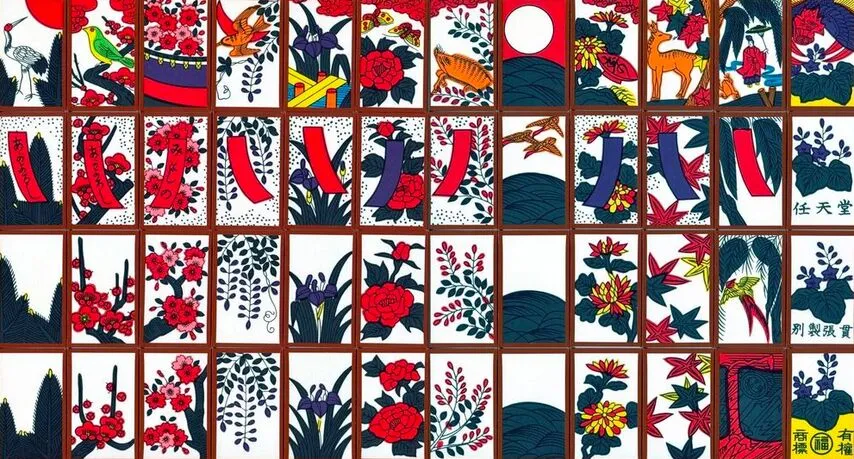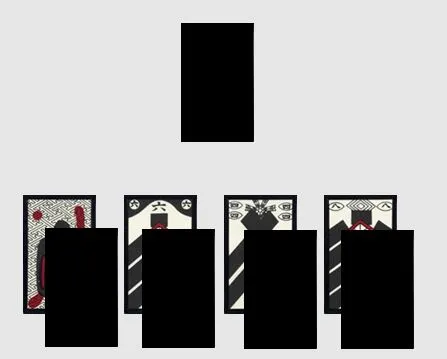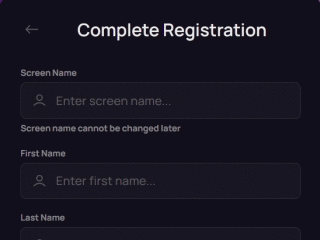Japan has an amazing ability to take Western inventions, transform them, and make them original. This happened with playing cards. They were brought to the country by the Portuguese in the 16th century, when they first set foot on the shores of the amazing eastern country. The locals liked the cards, and they quickly came up with their own games, including Japanese poker.
History of Card Games in Japan

Gambling card games have become popular everywhere. The state, concerned that its subjects were spending too much time and money on them, banned the Portuguese innovation. The resourceful Japanese did not despair and came up with a workaround.
They changed their appearance by decorating them with flowers and intricate patterns. It was difficult to recognize the classic Portuguese deck in the updated Japanese versions. Thus, people managed to circumvent the imperial ban, and at the same time, world culture was enriched with several types of original card decks.
If you are wondering what is Japanese poker – let’s clear that up. Seven card stud with wilds is sometimes given the label Japanese poker, but there isn’t a consensus on this. Players must discard cards to build strong hands, making the best 5-card combo at the end. Many other games are played in Japan, along with the common poker formats like Holdem and Omaha.
Online poker is prohibited by law in Japan, even though horse racing is accepted. In your case, online poker is probably allowed or accessible, and yet, you’re missing out on several free tournaments today!
Japanese Decks of Cards
One of the most impressive is a deck called Hanafuda. It is easily recognizable due to its beautiful drawings describing scenes from nature. There are 12 suits in this deck – according to the number of months in the year, but there are only four cards for each suit. So, a Hanafuda deck has 48 cards.

Instead of Broadway, images of ribbons, animals, or objects are used. Cards that contain nothing but plants or terrain are considered less valuable.
The card’s value also depends on the suit it belongs to. January, where the pine tree is depicted, has a denomination of 1, since it is the first month of the year. December with the strange paulownia plant – 12.
Most Hanafudu games are based on the principle of Monoawase or pairing systems. Thus, the most popular game is called Hana Awase – joining together flowers.
Another deck that the Japanese came up with to disguise the playing deck was Kabufuda.

There are four types of cards in Kabufuda. There are no suits, but each card has 10 varieties. They all have a face value, which allows you to score points. Kabafudu is the only Japanese game that retains the image of a person. The deck contains Jacks, their value is 11 points.
The most popular game with the Kabufudu deck is Oite-Kabu. It is a gambling game, so it has been banned several times, just like poker. However, connoisseurs managed to preserve the rules, so it still exists.
- GipsyTeam's unique promotions
- Help with deposits and cashouts
- Access to private freerolls
- Round-the-clock support
- GipsyTeam's unique promotions
- Help with deposits and cashouts
- Access to private freerolls
- Round-the-clock support
- GipsyTeam's unique promotions
- Help with deposits and cashouts
- Access to private freerolls
- Round-the-clock support
- Уникальные акции от GipsyTeam
- Помощь с депозитами и кешаутами
- Доступ в закрытые фрироллы
- Круглосуточная поддержка
- Уникальные акции от GipsyTeam
- Помощь с депозитами и кешаутами
- Доступ в закрытые фрироллы
- Круглосуточная поддержка
- GipsyTeam's unique promotions
- Help with deposits and cashouts
- Access to private freerolls
- Round-the-clock support
- Уникальные акции от GipsyTeam
- Помощь с депозитами и кешаутами
- Доступ в закрытые фрироллы
- Круглосуточная поддержка
- GipsyTeam's unique promotions
- Help with deposits and cashouts
- Access to private freerolls
- Round-the-clock support
- GipsyTeam's unique promotions
- Help with deposits and cashouts
- Access to private freerolls
- Round-the-clock support
- GipsyTeam's unique promotions
- Help with deposits and cashouts
- Access to private freerolls
- Round-the-clock support
- GipsyTeam's unique promotions
- Help with deposits and cashouts
- Access to private freerolls
- Round-the-clock support
- GipsyTeam's unique promotions
- Help with deposits and cashouts
- Access to private freerolls
- Round-the-clock support
- GipsyTeam's unique promotions
- Help with deposits and cashouts
- Access to private freerolls
- Round-the-clock support
- GipsyTeam's unique promotions
- Help with deposits and cashouts
- Access to private freerolls
- Round-the-clock support
- GipsyTeam's unique promotions
- Help with deposits and cashouts
- Access to private freerolls
- Round-the-clock support
- GipsyTeam's unique promotions
- Help with deposits and cashouts
- Access to private freerolls
- Round-the-clock support
- GipsyTeam's unique promotions
- Help with deposits and cashouts
- Access to private freerolls
- Round-the-clock support
- GipsyTeam's unique promotions
- Help with deposits and cashouts
- Access to private freerolls
- Round-the-clock support
- GipsyTeam's unique promotions
- Help with deposits and cashouts
- Access to private freerolls
- Round-the-clock support
- GipsyTeam's unique promotions
- Help with deposits and cashouts
- Access to private freerolls
- Round-the-clock support
- GipsyTeam's unique promotions
- Help with deposits and cashouts
- Access to private freerolls
- Round-the-clock support
- GipsyTeam's unique promotions
- Help with deposits and cashouts
- Access to private freerolls
- Round-the-clock support
- Уникальные акции от GipsyTeam
- Помощь с депозитами и кешаутами
- Доступ в закрытые фрироллы
- Круглосуточная поддержка
- GipsyTeam's unique promotions
- Help with deposits and cashouts
- Access to private freerolls
- Round-the-clock support
- GipsyTeam's unique promotions
- Help with deposits and cashouts
- Access to private freerolls
- Round-the-clock support
- GipsyTeam's unique promotions
- Help with deposits and cashouts
- Access to private freerolls
- Round-the-clock support
- GipsyTeam's unique promotions
- Help with deposits and cashouts
- Access to private freerolls
- Round-the-clock support
- GipsyTeam's unique promotions
- Help with deposits and cashouts
- Access to private freerolls
- Round-the-clock support
- GipsyTeam's unique promotions
- Help with deposits and cashouts
- Access to private freerolls
- Round-the-clock support
- Уникальные акции от GipsyTeam
- Помощь с депозитами и кешаутами
- Доступ в закрытые фрироллы
- Круглосуточная поддержка
- GipsyTeam's unique promotions
- Help with deposits and cashouts
- Access to private freerolls
- Round-the-clock support
- GipsyTeam's unique promotions
- Help with deposits and cashouts
- Access to private freerolls
- Round-the-clock support
- Уникальные акции от GipsyTeam
- Помощь с депозитами и кешаутами
- Доступ в закрытые фрироллы
- Круглосуточная поддержка
- GipsyTeam's unique promotions
- Help with deposits and cashouts
- Access to private freerolls
- Round-the-clock support
- Уникальные акции от GipsyTeam
- Помощь с депозитами и кешаутами
- Доступ в закрытые фрироллы
- Круглосуточная поддержка
- Уникальные акции от GipsyTeam
- Помощь с депозитами и кешаутами
- Доступ в закрытые фрироллы
- Круглосуточная поддержка
- GipsyTeam's unique promotions
- Help with deposits and cashouts
- Access to private freerolls
- Round-the-clock support
- GipsyTeam's unique promotions
- Help with deposits and cashouts
- Access to private freerolls
- Round-the-clock support
- GipsyTeam's unique promotions
- Help with deposits and cashouts
- Access to private freerolls
- Round-the-clock support
- Уникальные акции от GipsyTeam
- Помощь с депозитами и кешаутами
- Доступ в закрытые фрироллы
- Круглосуточная поддержка
- GipsyTeam's unique promotions
- Help with deposits and cashouts
- Access to private freerolls
- Round-the-clock support
- GipsyTeam's unique promotions
- Help with deposits and cashouts
- Access to private freerolls
- Round-the-clock support
- GipsyTeam's unique promotions
- Help with deposits and cashouts
- Access to private freerolls
- Round-the-clock support
- GipsyTeam's unique promotions
- Help with deposits and cashouts
- Access to private freerolls
- Round-the-clock support
- Уникальные акции от GipsyTeam
- Помощь с депозитами и кешаутами
- Доступ в закрытые фрироллы
- Круглосуточная поддержка
- GipsyTeam's unique promotions
- Help with deposits and cashouts
- Access to private freerolls
- Round-the-clock support
- GipsyTeam's unique promotions
- Help with deposits and cashouts
- Access to private freerolls
- Round-the-clock support
What is Oicho-Kabu?
The name translates from Japanese as "eight-nine". The goal is to beat the dealer by getting as close to nine points as possible. Busting means losing, just like in blackjack. Based on the results of the draw, one of the players becomes the dealer. The seating arrangement of participants at the table is determined in the same way. To the right of the dealer is the best position.
Basic Rules:
The dealer deals one face down to the players. They won't be entering into the drawing, but they will give everyone a little more information. Participants check their cards without showing anyone.
After the dealer puts four cards face up, they are called the first table. The time has come to place bets. players can bet on any number of cards. Then the dealer takes one for himself, puts it face down and deals it to the second table – one at a time, face down, to the first table.

Players can pick up and look at the cards that were included in their bets. At this moment they count how many points they have scored. After counting, the dealer asks if anyone else needs to draw from the deck. Everyone who wants to get it gets it, the rest just wait.
Finding the winner:
At the end of the hand, the cards are revealed. Each participant who collects more points than the dealer receives a payout equal to the amount of his bet. Anyone who scores more than nine points or less than the dealer loses their bet.
Where to play Japanese poker games?
Unfortunately, games with Japanese decks are not popular all over the world.
If you want to play card games online for money, take a look at the more popular types of poker: Texas Hold'em, Omaha, Short Deck. These disciplines are chosen by players from all over the world, so there will be opponents at any time of the day. The main thing is to choose the right site.


























